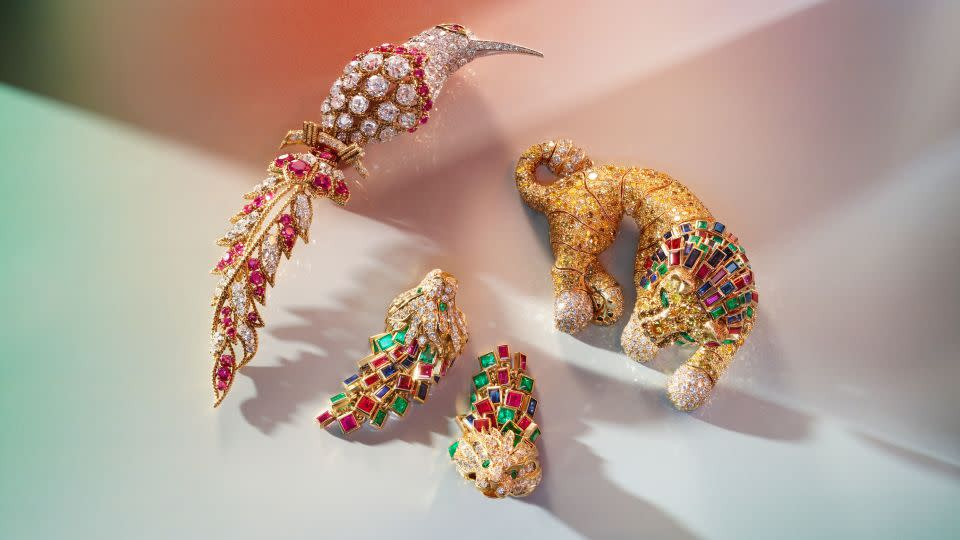Christie’s cancels auction of jewelry linked to Nazi-era fortune
The sale of over 400 pieces of jewelry once owned by late art collector Heidi Horten broke records at a series of auctions earlier this year.
But amid ongoing criticism from Jewish advocacy groups and human rights organizations over the source of the Austrian billionaire’s wealth, Christie’s auction house announced Thursday that it has canceled the final part of the controversial sale.
Horten’s former husband, Helmut, first made his fortune in Nazi Germany by buying out Jewish businesses “sold under duress,” Christie’s acknowledged in its sale catalog, having initially described him simply as “a German entrepreneur and businessman” in press releases.
“The sale of the Heidi Horten jewelry collection has provoked intense scrutiny, and the reaction to it has deeply affected us and many others, and we will continue to reflect on it,” Anthea Peers, Christie’s president of Europe, the Middle East and Africa, said in a statement announcing the decision to cancel November’s online sale of around 300 items.
The first three parts of the sale — two live auctions in Geneva, Switzerland and an online sale — fetched a combined 179.9 million Swiss francs ($201 million) in May to become the most expensive private jewelry collection ever to sell at auction. (Christie’s had initially predicted that Horten’s entire collection, featuring over 700 jewels, would sell for over $150 million.)

Critics slammed Christie’s for hosting the auction and not explicitly acknowledging how Helmut Horten grew his ten-figure wealth under Nazi Germany’s “Aryanization” laws, which saw Jewish people’s property and assets seized and transferred to non-Jews. The German businessman acquired a number of previously Jewish-owned department stories in this period, and was later credited with introducing Germany’s first supermarket chain.
Prior to May’s sales, the American Jewish Committee had called for the auction to be put on hold until “a serious effort” was made to investigate the Hortens’ wealth. In a tweet on X, the social media platform formerly known as Twitter, the group described Christie’s decision to cancel the final sale as “welcome news,” while reiterating that the first auctions “should have never taken place.”
The Holocaust Art Restitution Project, a Washington D.C.-based research and advocacy group, meanwhile described the decision as “a win for Holocaust survivors.”
Announcing the sales in March, Christie’s said that proceeds from the auction would go to the Heidi Horten Collection, an art museum that the collector established in Vienna, Austria, before her death in 2022, as well as to benefitting “medical research and other philanthropic activities.” Following outcry from Jewish groups, the auction house also pledged a “significant” donation from the proceeds to further Holocaust education and research.
The Heidi Horten Collection did not respond to CNN’s request for comment.
Forbes reported Horten’s net worth at around $3 billion when she died in June last year. She had inherited $1 billion from Helmut after his death in 1987.
For more CNN news and newsletters create an account at CNN.com